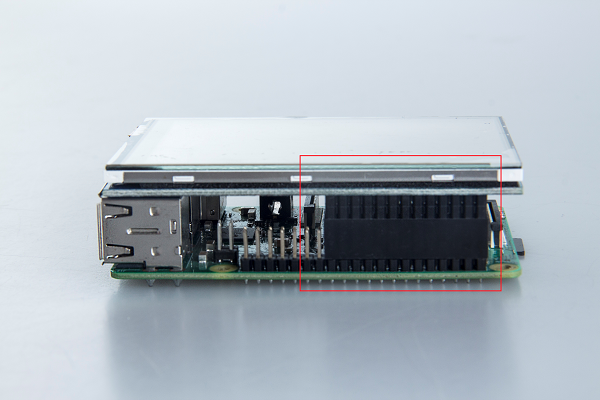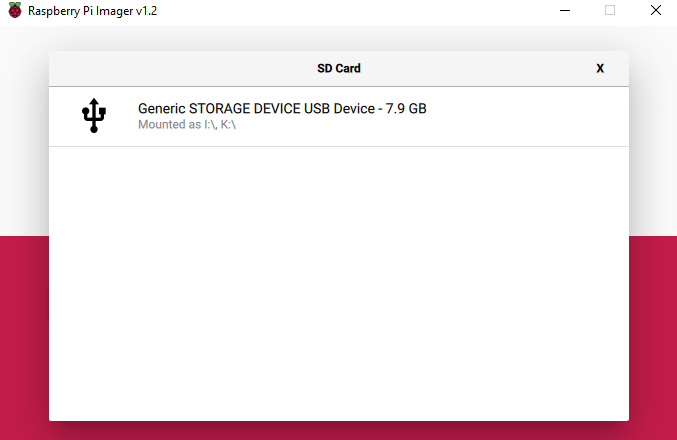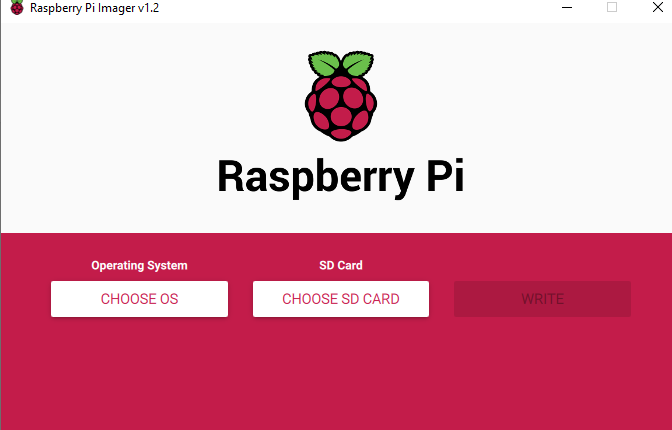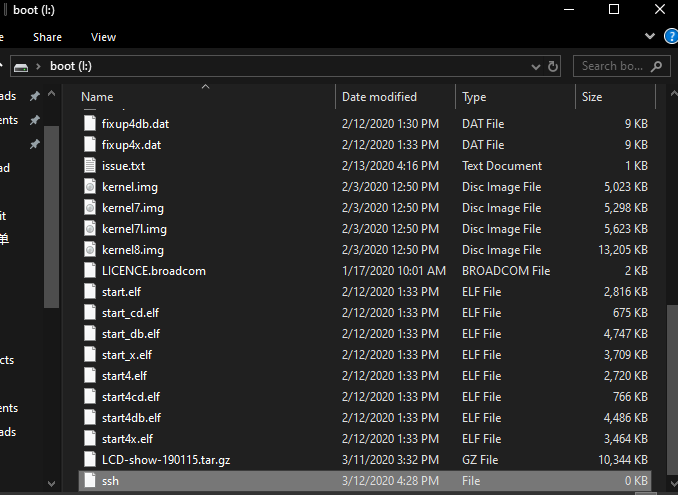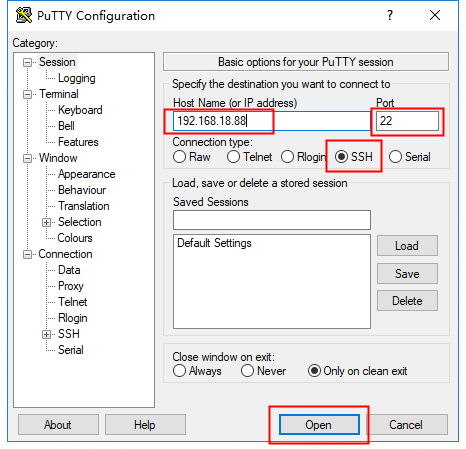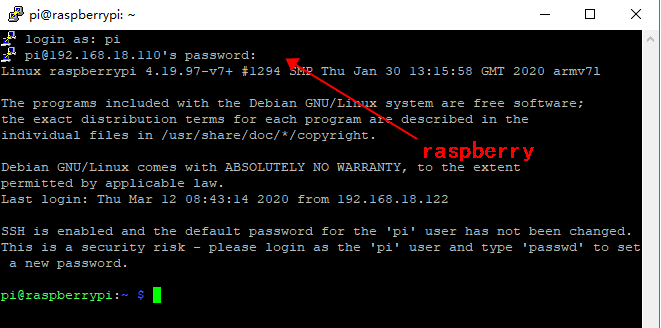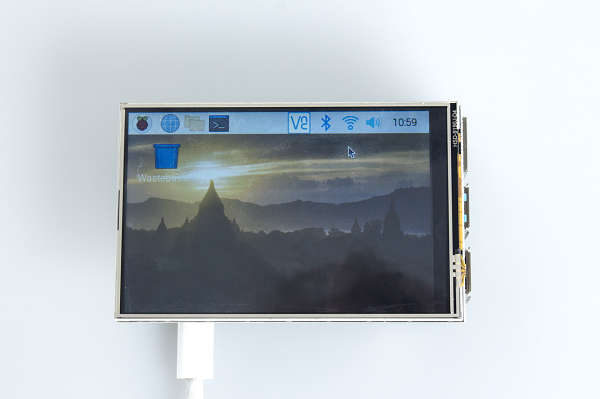Difference between revisions of "Raspberry Pi 3.5" TFT Resistive Touchscreen"
| (4 intermediate revisions by the same user not shown) | |||
| Line 57: | Line 57: | ||
1. Create an empty file named "ssh" without a suffix in the directoy /boot.<br> | 1. Create an empty file named "ssh" without a suffix in the directoy /boot.<br> | ||
| − | 2. Download the driver file LCD-show190115.tar.gz and copy to /boot.<br> | + | 2. Download the driver file [http://wiki.sunfounder.cc/images/7/70/LCD-show-190115.tar.gz LCD-show190115.tar.gz] and copy to /boot.<br> |
| − | [[File: | + | [[File:Cam003-3.png]]<br> |
2. Connect the RPi & the screen. Align the pin header on the RPi with that on the screen. At the same time, take out the SD card from the card reader to insert it into the SD slot on RPi. Then plug the RPi power adapter and network cable. | 2. Connect the RPi & the screen. Align the pin header on the RPi with that on the screen. At the same time, take out the SD card from the card reader to insert it into the SD slot on RPi. Then plug the RPi power adapter and network cable. | ||
| Line 89: | Line 89: | ||
=Final Effect= | =Final Effect= | ||
[[File:Sc002-5.png]]<br> | [[File:Sc002-5.png]]<br> | ||
| + | |||
| + | |||
| + | =Resource= | ||
| + | [http://wiki.sunfounder.cc/images/7/70/LCD-show-190115.tar.gz LCD-show190115.tar.gz][[File:ZIP.jpg]] | ||
Latest revision as of 08:55, 10 April 2020
Contents
[hide]Introduction
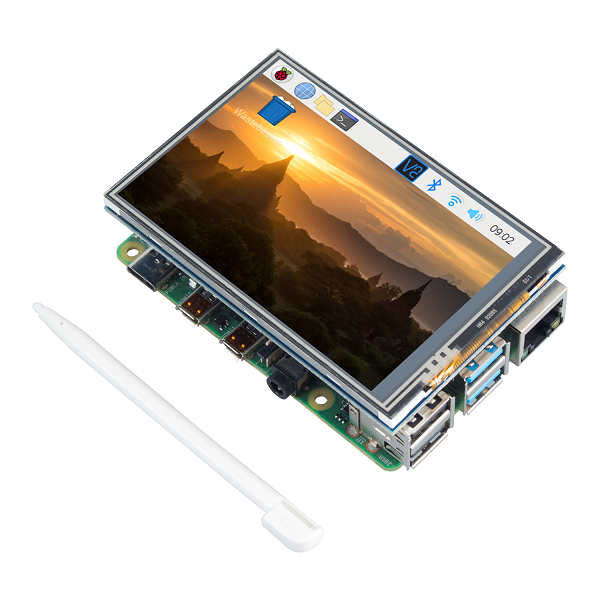
Is this not the cutest, little display for the Raspberry Pi? It features a 3.5" display with 480x320 16-bit color pixels and a resistive touch. The screen has a high refreshing rate, nearly 50-60 frames per second, thus giving you the best fantastic game-play and vedio-watching.
Best of all, there are expansion terminals that added behind the screen's PCB, allowing 3.5-inch screens and fans to be used simultaneously. Thus as the screen is working, the fan cools the Raspberry Pi's CPU at the same time, making the system run more smoothly.
This TFT 3.5" is designed to fit nicely onto the Raspberry Pi 4B/3B/3B+/3A+/Zero W. It comes fully assembled and ready to plug into your Pi!
Feature List
- LCD Type: TFT
- LCD Interface: SPI
- Resistive Touch Screen
- XPT2046 Touch Screen Controller
- 65536 Colors
- Backlight LED
- Resolution: 480x320
- Aspect Ratio: 4:3
- SPI Diver Speed: 16MHz
Preparation
Product List
- 1 x 3.5 Touchscreen HAT
- 1 x Touch Pen
Required Preparation
- 1. Raspberry Pi 2B/3B/3B+/4B
- 2. Raspberry Pi Power Adapter
- 3. Network Cable (it's for RPi system installation and you can ignore it if you have finished.)
- 4. Card Reader: (it's for RPi system installation and you can ignore it if you have finished.)
- 5. SD card (a recommended 8g and higher one) (it's for RPi system installation and you can ignore it if you have finished.)
Hardware Operation
Align the pins on the right to connect the RPi with the screen; meanwhile, insert the SD card and plug the power cable.
Software Operation
Step1: Download RPi system
1. Click in to access the Raspberry Pi official website https://www.raspberrypi.org/downloads/,and then select to download the image you need according to your compute types (windows/MAC/Ubuntu).
2. After downloading, click to start the installation of imager.exe. The RPi Imager page appears when the installation is done. You need to click CHOOSE OS then on the new page,select the first one.
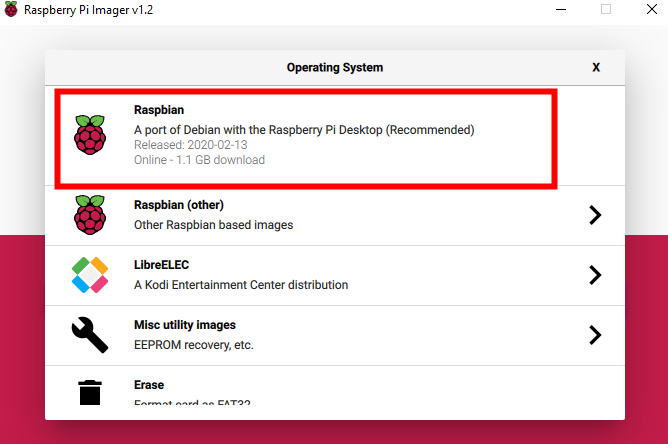
3. Insert the SD card in the card reader then plug the card reader into the computer. You should click CHOOSE SD CARD to let the following SD Card page appear. Now, select the SD card information bar. Back to the RPi page and click WRITE to download and flash the RPi system.
Step2: Driver Installation
1. Create an empty file named "ssh" without a suffix in the directoy /boot.
2. Download the driver file LCD-show190115.tar.gz and copy to /boot.
2. Connect the RPi & the screen. Align the pin header on the RPi with that on the screen. At the same time, take out the SD card from the card reader to insert it into the SD slot on RPi. Then plug the RPi power adapter and network cable.
3. The RPi starts as soon as it's connected to the power supply. Next, you can find your RPi ip.
- i. Check the RPi ip via Advanced IP Scanner.
- ii. Advanced IP Scanner download link: https://filehippo.com/download_advanced_ip_scanner/
- iii: You can use router management page to check the wired connection.
4. Plug the internet cable and the sd card into RPi, then connect the RPi to the power supply.Now, you can find your RPi ip on the RPi management page.
- Got the ip, you can use putty tool to control RPi remotely via ssh remote connection. Note: The password characters are hidden when you are entering.
5. Type in the following commands in order. Press "Enter" once each time you've finished one line.
cd /boot sudo tar zxvf LCD-show-190115.tar.gz cd LCD-show/ sudo ./LCD35-show
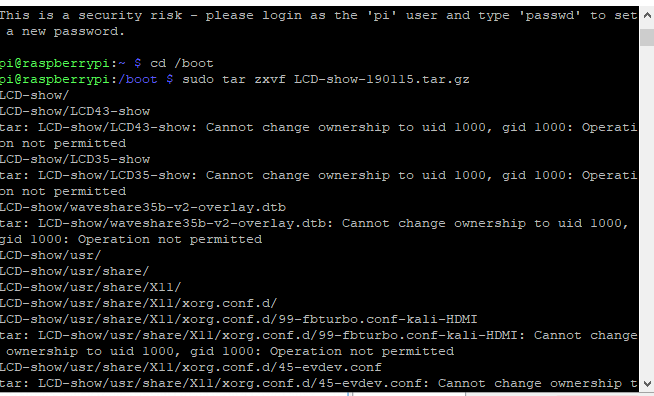
The above commands executed, the system restarts automatically for display and touch in good condition.
Final Effect
